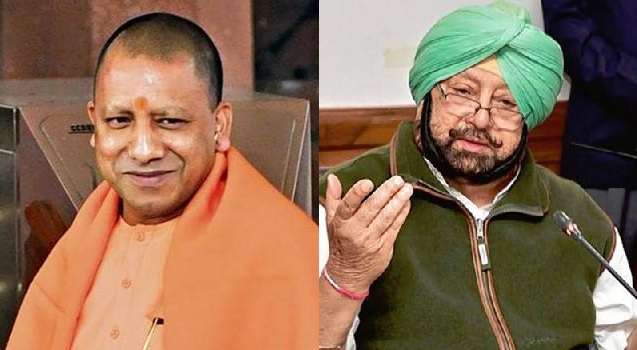The state of Punjab has become a living hell for industrialists, thanks to decades of poor governance and apathy towards industries. From law and order issues to corruption, power cuts to extortion, industrialists are having a hard time in the state.
Frustrated by the hostile environment in Punjab, a group of industrialists from the state met Uttar Pradesh chief minister Yogi Adityanath, who promised a ‘peaceful environment’ and ‘uninterrupted power supply. He invited them to set up plants in industrial areas of Uttar Pradesh.
In the last few months, the industrial cities of Punjab like Ludhiana and Jalandhar have faced frequent power and this forced the industrialists to seek an alternative.
Representatives of Federation of Industrial and Commercial Organisation (FICO), Federation of Dyeing Association, Focal Point Phase -7 Association and Purvanchal Udyogik Vikas Parishad (all of which are industry bodies of Punjab), met Uttar Pradesh CM in order to seek assurance of conducive environment if they move factories in the state.
“Yogi Adityanath assured 24-hour uninterrupted power to the industry throughout the year. Further, he said that Uttar Pradesh government will ensure total peaceful environment for the industry with law and order fully maintained. He said that Uttar Pradesh is part of the Eastern Corridor, which will ensure cheap and easy movement of goods,” said Gurmeet Singh Kular, president, FICO.
The representatives also met top bureaucrats from the infrastructure development and industrial departments of the state, who assured cooperation, if these industries move factories in Uttar Pradesh.
TR Mishra, chairperson, Federation of Dyeing Association, Punjab, said, “Arvind Kumar told the delegation that the Government of Uttar Pradesh will provide fully developed industrial area near the junction points of the Yamuna Expressway for easy access at very reasonable prices with all basic amenities for industry. Moreover, India’s largest airport is under construction at Jewar in Western UP. In Punjab we are facing power cuts, the cost of production has escalated, land prices are very high and labour shortage is a common scenario. Such an offer can always be discussed”.
The farmers’ protests and their aggression in the last few months in driving the industrialists further away from the state, whose economy is already sinking. In the last few decades, the economy of Punjab has witnessed very little growth compared to Gujarat, Madhya Pradesh, Tamil Nadu, or even Haryana.
Until the 1990s, Punjab was miles ahead of other Indian states in terms of the per capita income, mostly thanks to the ‘Green Revolution’ of the late 1960s. However, as India transformed from a primarily agrarian economy to services-and-industry-based economy after the reforms of 1991, Punjab was left far behind.
While the other states are industrializing rapidly since the last few decades, Punjab has witnessed rapid de-industrialization in the last one and a half-decade. Economist Shamika Ravi, in an article published in ThePrint, argued that industrial clusters in Punjab are witnessing closure.
“Manufacturing clusters of Jalandhar, Gurdaspur, Mandi Gobindgarh and Ludhiana have been struggling over time and reported lack of growth and rampant closures. One of the major reasons for this is the non-competitiveness of Punjab compared to other Indian states. Several states, including neighbouring Himachal Pradesh, Jammu and Kashmir, and Uttarakhand have improved their ease of doing business environment and offered incentives such as 100 per cent income tax and excise exemption, subsidised working capital loans, etc,” she wrote.
Also read: After ‘Udta Punjab’ comes ‘Girta Punjab’ – the economic downfall of Punjab is unavoidable
Presently, the per capita income in Haryana is 1.5 times more than that of Punjab. Punjab is now far behind in 3 sectors- agriculture, industry, and services. Neighbouring states like Himachal Pradesh, Uttarakhand, and Jammu & Kashmir benefitted from the deindustrialization of Punjab, and the Yogi government is also capitalizing on the same, by offering a conducive environment to industries.

























